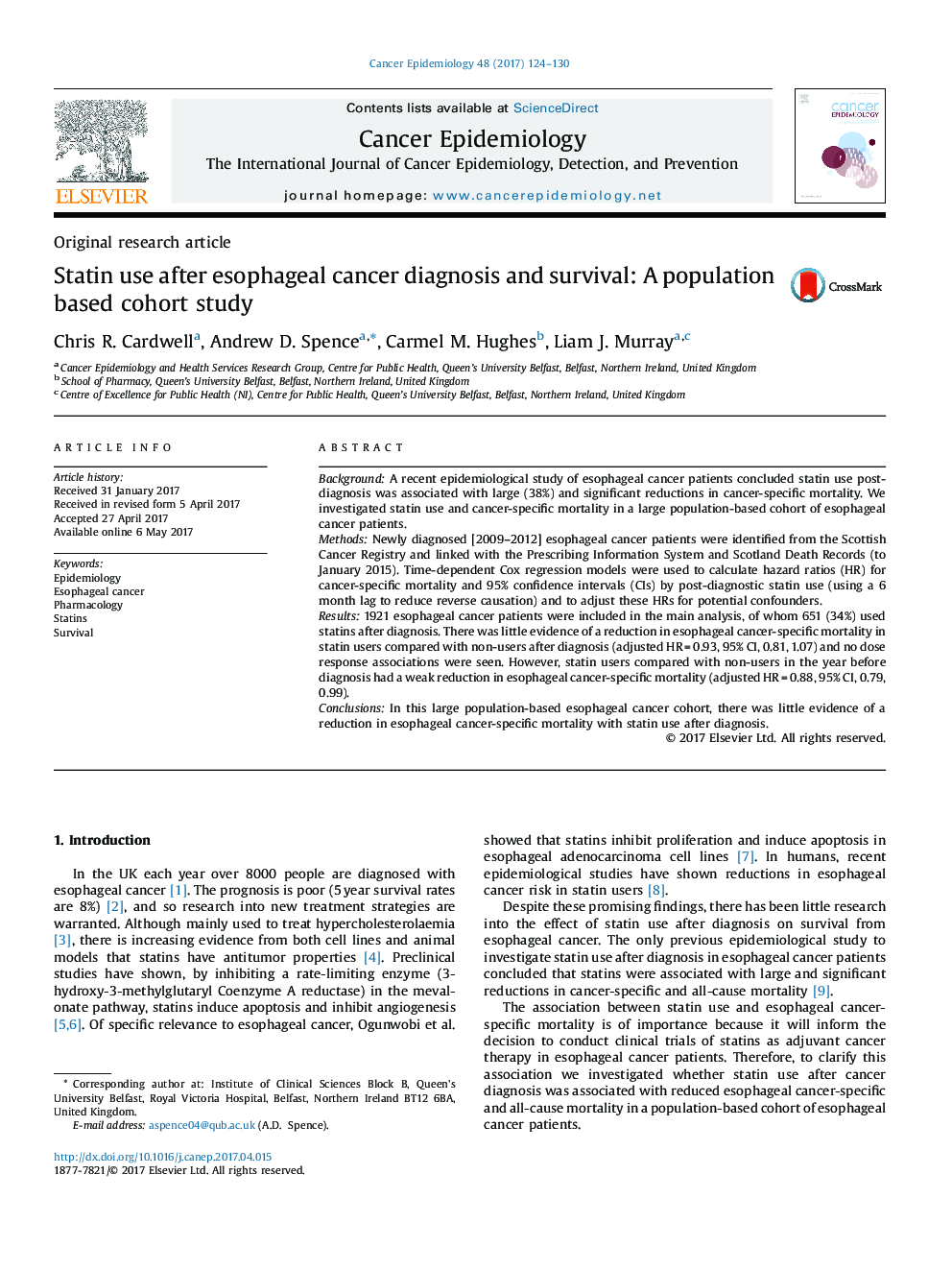| Article ID | Journal | Published Year | Pages | File Type |
|---|---|---|---|---|
| 5524883 | Cancer Epidemiology | 2017 | 7 Pages |
â¢Statins reduce apoptosis in esophageal adenocarcinoma cell lines.â¢A previous study concluded statins were associated with large reductions in esophageal cancer-specific mortality.â¢We found no association between statin use and esophageal cancer-specific mortality.
BackgroundA recent epidemiological study of esophageal cancer patients concluded statin use post-diagnosis was associated with large (38%) and significant reductions in cancer-specific mortality. We investigated statin use and cancer-specific mortality in a large population-based cohort of esophageal cancer patients.MethodsNewly diagnosed [2009-2012] esophageal cancer patients were identified from the Scottish Cancer Registry and linked with the Prescribing Information System and Scotland Death Records (to January 2015). Time-dependent Cox regression models were used to calculate hazard ratios (HR) for cancer-specific mortality and 95% confidence intervals (CIs) by post-diagnostic statin use (using a 6 month lag to reduce reverse causation) and to adjust these HRs for potential confounders.Results1921 esophageal cancer patients were included in the main analysis, of whom 651 (34%) used statins after diagnosis. There was little evidence of a reduction in esophageal cancer-specific mortality in statin users compared with non-users after diagnosis (adjusted HRÂ =Â 0.93, 95% CI, 0.81, 1.07) and no dose response associations were seen. However, statin users compared with non-users in the year before diagnosis had a weak reduction in esophageal cancer-specific mortality (adjusted HRÂ =Â 0.88, 95% CI, 0.79, 0.99).ConclusionsIn this large population-based esophageal cancer cohort, there was little evidence of a reduction in esophageal cancer-specific mortality with statin use after diagnosis.
